
Discover the Vibrant Heart of The Gambia: Brikama
Brikama, the bustling town in the Western Division of The Gambia, is a gateway to the country's rich culture and vibrant community life. As the largest town in this region, Brikama serves as a hub of trade and commerce, offering tourists a unique glimpse into local Gambian life. The town is known for its wood carving and craft markets, where you can find beautifully handcrafted items made by skilled artisans. These markets are not just places to shop but also spots to witness the traditional techniques and creativity that have been passed down through generations. One of the most captivating aspects of Brikama is its music scene. The town is often referred to as the 'home of Gambian music,' and it's easy to see why. From rhythmic drumming sessions to soulful kora performances, music is an integral part of life here. Visitors can immerse themselves in this musical heritage by attending live performances and even participate in drumming workshops. The lively atmosphere is contagious, making it impossible not to tap your feet along with the beats. Nature enthusiasts will also find plenty to love in and around Brikama. The town is situated near several natural attractions, including the Abuko Nature Reserve, which is home to a variety of wildlife and bird species. A visit to this reserve offers an opportunity to experience The Gambia's natural beauty and biodiversity up close. Additionally, the nearby Makasutu Cultural Forest provides a serene escape into nature, complete with guided tours, river excursions, and cultural experiences. Brikama's culinary scene is another highlight for visitors. The town boasts a variety of local eateries and street food vendors offering delicious Gambian dishes such as benachin (Jollof rice), domoda (peanut stew), and fresh seafood. Sampling these dishes is a must for any food lover and offers a true taste of Gambian hospitality and flavor.
Local tips in Brikama
- Visit the local markets early in the morning to experience the bustling trade and get the best deals on handcrafted items.
- Attend a live music performance to truly appreciate Brikama's rich musical heritage. Many local venues host performances throughout the week.
- Hire a local guide for a tour of the Abuko Nature Reserve to learn about the diverse wildlife and plants in the area.
- Try street food from local vendors to taste authentic Gambian flavors. Look for popular dishes like benachin, domoda, and fresh seafood.
- Bring cash, as many local markets and vendors do not accept credit cards.
Discover the Vibrant Heart of The Gambia: Brikama
Brikama, the bustling town in the Western Division of The Gambia, is a gateway to the country's rich culture and vibrant community life. As the largest town in this region, Brikama serves as a hub of trade and commerce, offering tourists a unique glimpse into local Gambian life. The town is known for its wood carving and craft markets, where you can find beautifully handcrafted items made by skilled artisans. These markets are not just places to shop but also spots to witness the traditional techniques and creativity that have been passed down through generations. One of the most captivating aspects of Brikama is its music scene. The town is often referred to as the 'home of Gambian music,' and it's easy to see why. From rhythmic drumming sessions to soulful kora performances, music is an integral part of life here. Visitors can immerse themselves in this musical heritage by attending live performances and even participate in drumming workshops. The lively atmosphere is contagious, making it impossible not to tap your feet along with the beats. Nature enthusiasts will also find plenty to love in and around Brikama. The town is situated near several natural attractions, including the Abuko Nature Reserve, which is home to a variety of wildlife and bird species. A visit to this reserve offers an opportunity to experience The Gambia's natural beauty and biodiversity up close. Additionally, the nearby Makasutu Cultural Forest provides a serene escape into nature, complete with guided tours, river excursions, and cultural experiences. Brikama's culinary scene is another highlight for visitors. The town boasts a variety of local eateries and street food vendors offering delicious Gambian dishes such as benachin (Jollof rice), domoda (peanut stew), and fresh seafood. Sampling these dishes is a must for any food lover and offers a true taste of Gambian hospitality and flavor.
When is the best time to go to Brikama?
Iconic landmarks you can’t miss
Senegambia Craft Market
Discover the vibrant artistry and unique craftsmanship at Senegambia Craft Market, a cultural gem in the heart of Serrekunda, The Gambia.
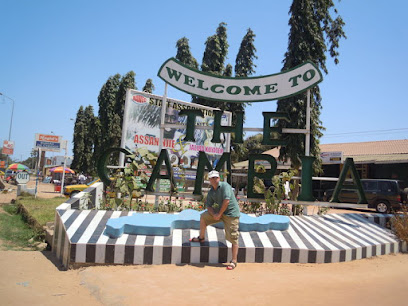
Bijilo National Park
Immerse yourself in the diverse ecosystems and rich wildlife of Bijilo National Park, a national treasure in the heart of The Gambia.
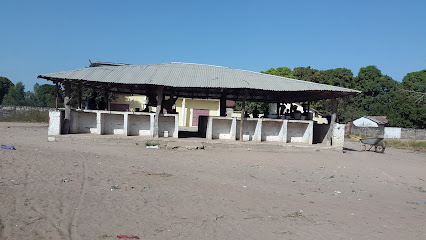
Bijilo Monkey Park
Visit Bijilo Monkey Park in Serrekunda, Gambia for an unforgettable encounter with playful monkeys and breathtaking natural scenery.
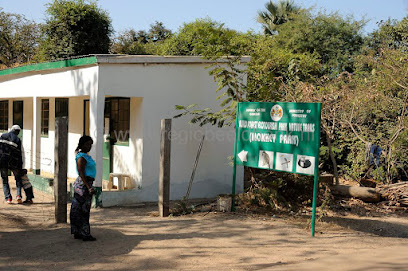
Albert Market
Experience the vibrant culture of Banjul at Albert Market, where local crafts, delicious food, and authentic Gambian life come together in a colorful setting.
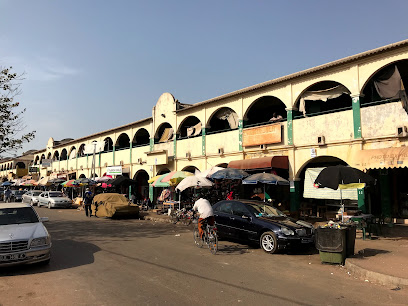
Arch 22
Discover Banjul's Arch 22, a historical landmark that symbolizes Gambia's rich heritage and offers stunning views of the city and the Atlantic.
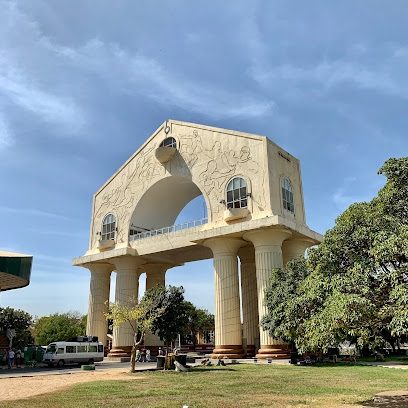
Bakau craft market
Experience the vibrant Bakau Craft Market in Gambia, a hub of authentic craftsmanship and cultural treasures waiting to be discovered.
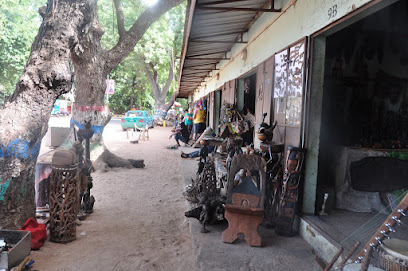
Abuko Nature Reserve
Experience the tranquility of Abuko Nature Reserve, a haven for wildlife and nature lovers in The Gambia, showcasing stunning biodiversity and serene landscapes.
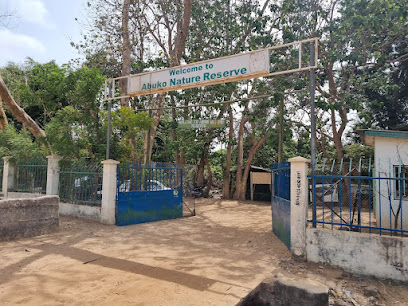
Stone Circles of Gambia
Discover the ancient wonders of the Stone Circles of Gambia, a UNESCO World Heritage site that reveals the rich history and culture of this enchanting region.
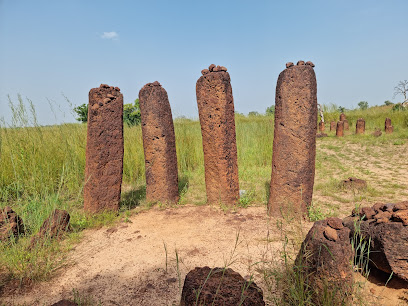
Brikama Craft Market
Dive into the heart of Gambian culture at Brikama Craft Market, a lively hub of local artistry and authentic craftsmanship.
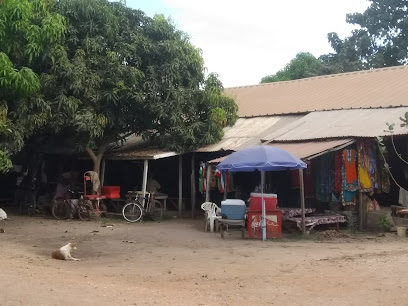
Makasutu
Explore Makasutu National Park, a natural haven in The Gambia, where lush landscapes and rich cultural experiences await every traveler.
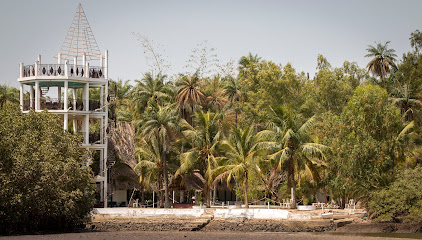
Tanje Village Museum
Explore the vibrant history and culture of The Gambia at Tanje Village Museum, showcasing local traditions and artifacts in an engaging environment.
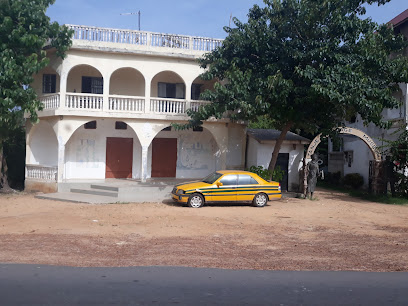
Fort Bullen
Discover the historic Fort Bullen in Barra, Gambia – a UNESCO World Heritage site showcasing the region's colonial past and stunning landscapes.
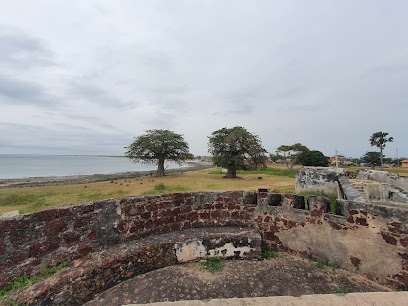
E.E. Minimarket
Discover Brikama's local flavors and essentials at E.E. Minimarket, your go-to grocery store for a taste of Gambian culture.
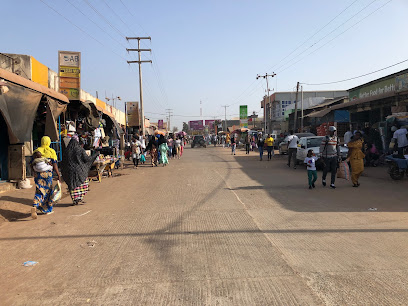
Jamisa Primary School
Explore the vibrant educational atmosphere of Jamisa Primary School in Brikama, a cultural exchange hub reflecting the spirit of The Gambia.
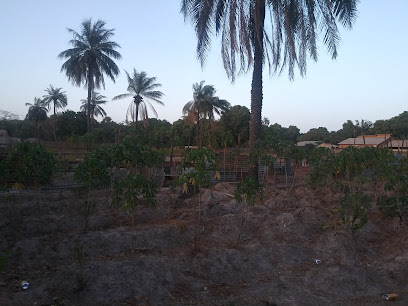
Brikama New Town Mosque
Experience the serene beauty and cultural richness of Brikama New Town Mosque, a significant landmark in Gambia's spiritual landscape.

Unmissable attractions to see
Kachikally Crocodile Pool
Experience the mystical charm of Kachikally Crocodile Pool, a unique sanctuary where local culture meets wildlife in Bakau, Gambia.
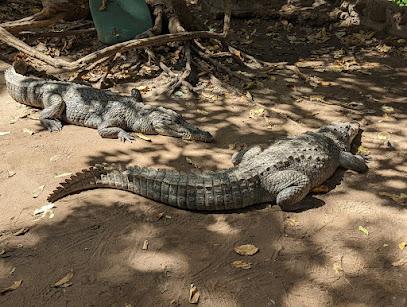
Fathala Wildlife Reserve
Experience the thrill of the wild at Fathala Wildlife Reserve, Senegal's premier destination for safari adventures and wildlife encounters.
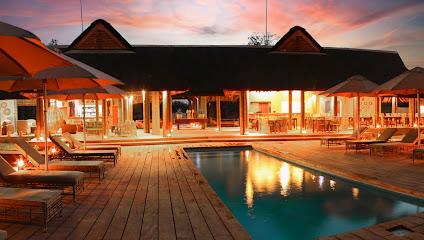
Bijilo National Park
Experience the tranquility of nature at Bijilo National Park, a lush haven in Serrekunda teeming with wildlife and scenic beauty.
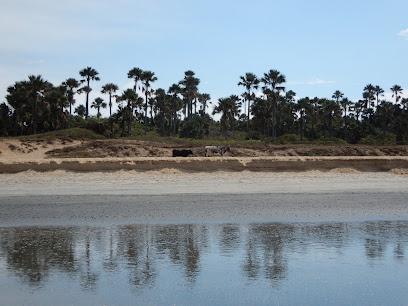
Albert Market
Explore the vibrant Albert Market in Banjul, a cultural hub showcasing local crafts, fresh produce, and authentic Gambian cuisine.
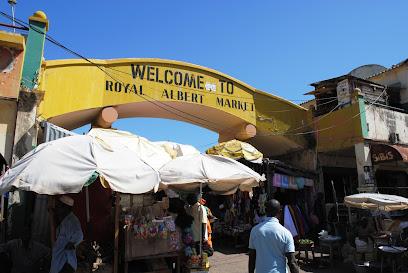
National Museum Of The Gambia
Explore The Gambia's rich cultural heritage at the National Museum, a window into the nation's vibrant history and artistic expressions.
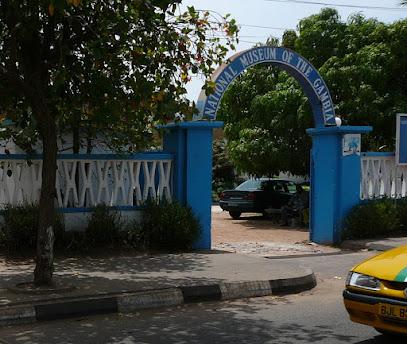
Tanji Fishing Center 🎣 bass
Discover the vibrant fishing culture of The Gambia at Tanji Fishing Center, where fresh seafood meets local charm and coastal beauty.
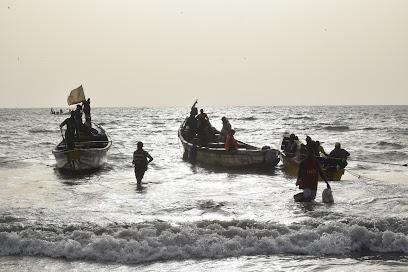
Senegambia Beach
Experience the beauty and vibrancy of Senegambia Beach, where golden sands meet thrilling water sports and rich Gambian culture.
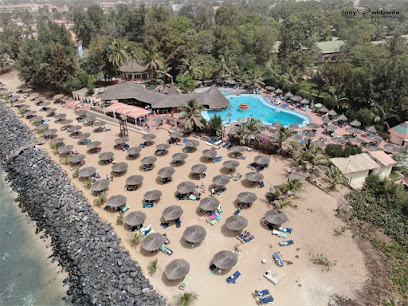
Makasutu
Explore the enchanting Makasutu National Park in Bafuloto, Gambia, a paradise for nature lovers and cultural enthusiasts alike, rich in biodiversity and local heritage.
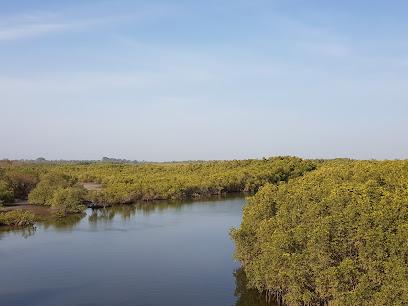
Black and White Safari
Uncover the beauty of The Gambia's wildlife with unforgettable safari experiences at Black and White Safari in Serrekunda.
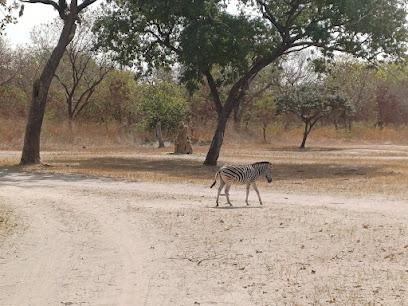
Bird Guide Gambia - Abdoulie Ndure
Explore the vibrant birdlife of Lamin, Gambia, with expert guidance at Bird Guide Gambia, a must-visit for nature and bird watching enthusiasts.
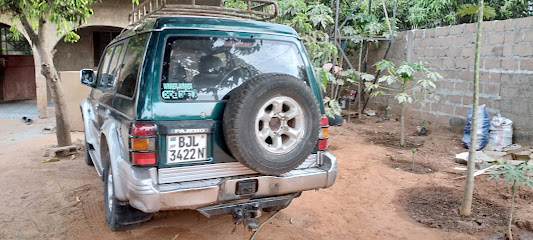
Bijilo Beach
Discover the tranquil beauty of Bijilo Beach, a serene escape in The Gambia, perfect for relaxation, culture, and adventure.
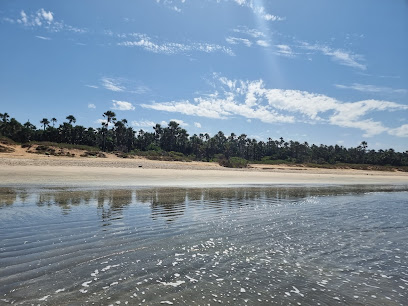
Serrekunda Beach
Discover the beauty of Serrekunda Beach: a vibrant coastal gem in The Gambia with sun, culture, and adventure waiting for you.
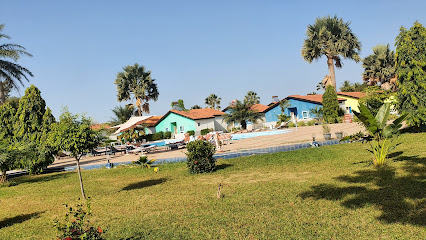
King Fisher
Discover the beauty of Kotu Beach at King Fisher, where stunning views meet delicious Gambian cuisine in a tranquil atmosphere.
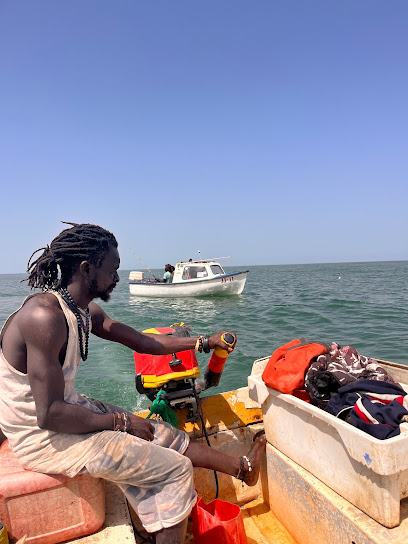
Soforal Lodge
Experience the serene beauty and warm hospitality of Soforal Lodge in Gunjur, your perfect escape in The Gambia.
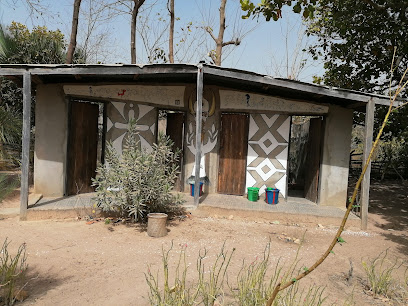
Bijilo Beach Bijilo, Gambia
Discover the serene Bijilo Beach in Gambia, a tranquil escape with golden sands, clear waters, and rich wildlife experiences.
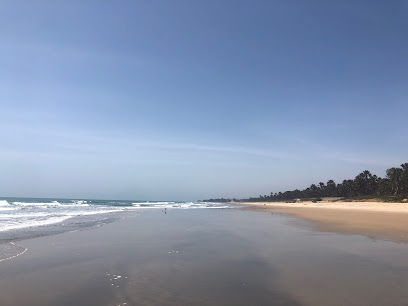
Essential places to dine
3 Chicks & A Grill
Experience vibrant dining at 3 Chicks & A Grill in Serrekunda's Senegambia Strip – where delicious flavors meet lively entertainment.
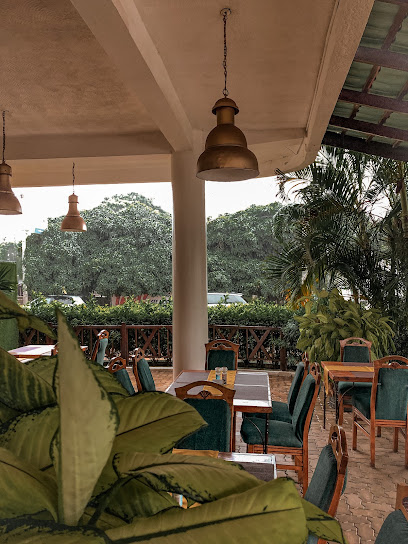
Blue Kitchen
Experience authentic Gambian cuisine at Blue Kitchen in Sukuta - where local flavors meet international flair.
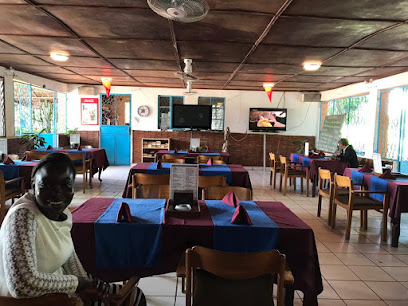
Alibaba Restaurant brusubi
Discover authentic Gambian cuisine at Alibaba Restaurant in Brusubi, where every dish tells a story and every meal is a celebration.
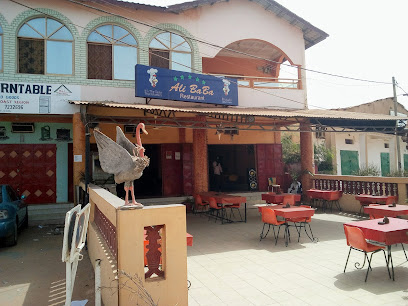
Britannia Night Club & Mikimba Restaurant
Discover the flavors of Lebanon at Britannia Night Club & Mikimba Restaurant in Serrekunda—where culinary delights meet vibrant nightlife.
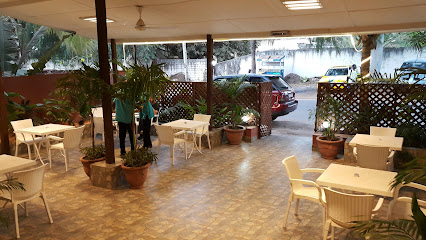
Happy Corner
Discover Happy Corner in How Ba – where delicious local and international cuisine meets a warm and inviting atmosphere.
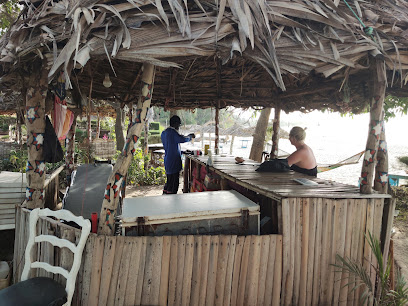
Dreams bar en restaurant
Experience the vibrant flavors of Gambian cuisine at Dreams Bar and Restaurant in Serrekunda—where every meal is a celebration of culture.
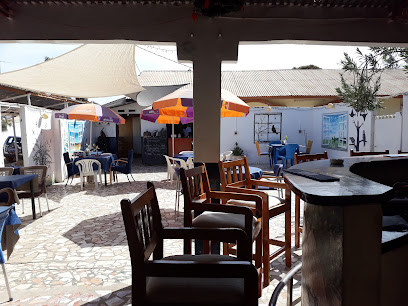
Woodpecker Bar and Restaurant
Discover authentic Gambian cuisine at Woodpecker Bar and Restaurant in Banjulunding – a delightful blend of flavor and culture awaits you.
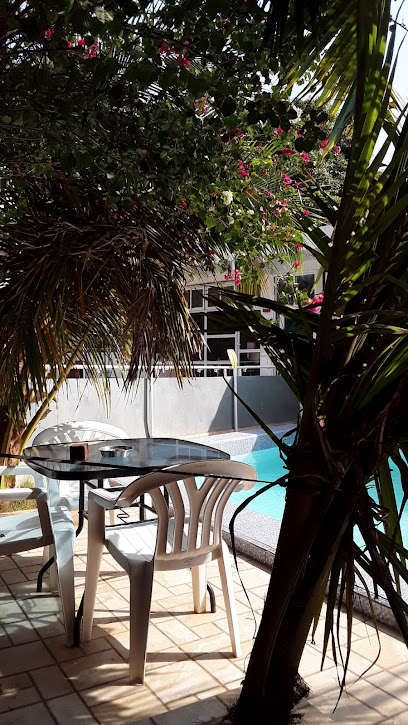
Heritage Restaurant
Experience authentic Gambian cuisine at Heritage Restaurant in Serrekunda—where every dish tells a story.
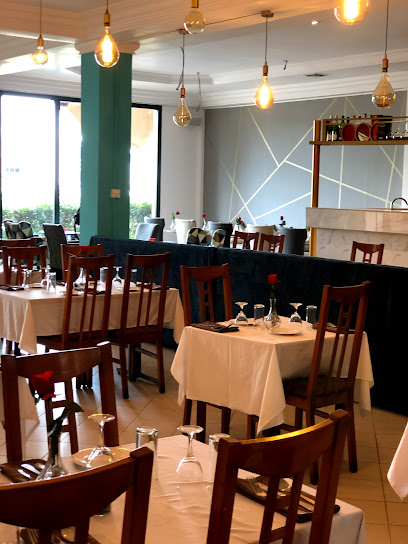
BAR RESTAURANTE BIRD GARDEN
Experience delightful local cuisine in a serene garden setting at Bar Restaurante Bird Garden in Sanyang.
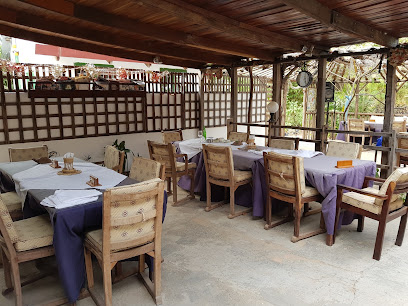
Happy Corner Restaurant
Discover authentic Gambian flavors at Happy Corner Restaurant in Yundum – where every dish tells a story.
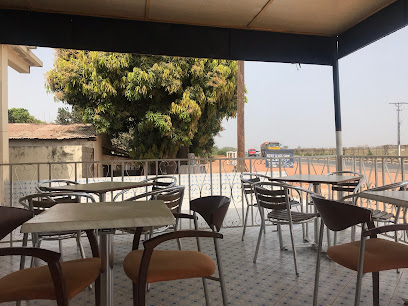
Black And White
Experience authentic Gambian cuisine at Black And White in How Ba—where every dish tells a story.
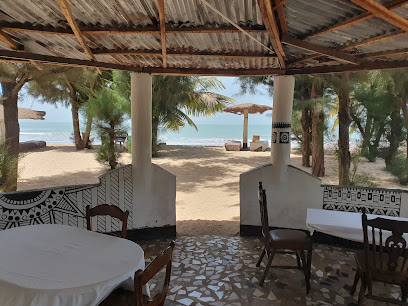
Lekker'e Restaurant
Experience authentic Gambian flavors at Lekker'e Restaurant in Lamin – where every meal is a celebration of taste and culture.
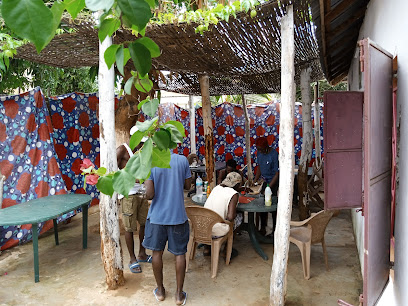
Kinkilibar Restaurant/Lodge
Discover exquisite local flavors at Kinkilibar Restaurant/Lodge on Sanyang Beach—where culinary excellence meets breathtaking ocean views.
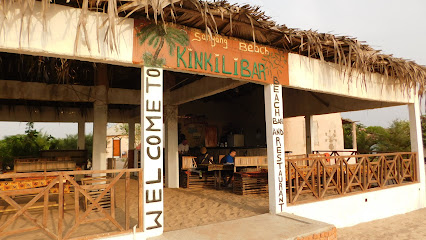
Mummy Mariam Restaurant
Experience authentic Gambian cuisine at Mummy Mariam Restaurant in Lamin – where every meal tells a story.
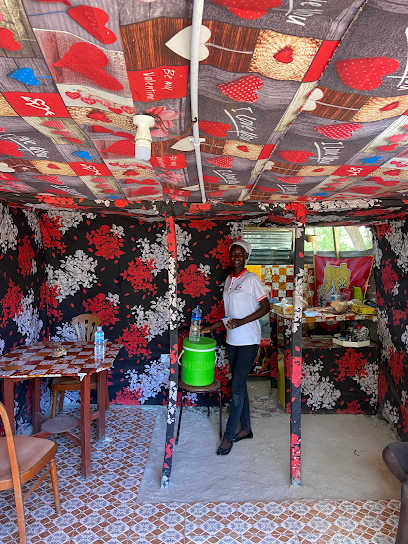
Emeka Great Hands Nigerian Restaurant
Savor authentic Nigerian flavors at Emeka Great Hands Restaurant in Serrekunda – a delightful journey into West African cuisine awaits.
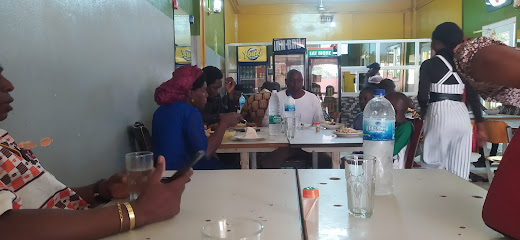
Markets, malls and hidden boutiques
Brikama Craft Market
Discover the vibrant Brikama Craft Market, a cultural gem in The Gambia, offering exquisite crafts and a taste of local heritage.
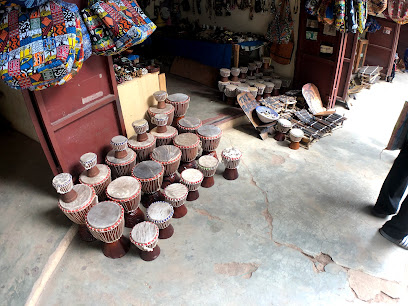
TOP-SHOP
Discover the heart of Gambian culture at TOP-SHOP, your premier destination for authentic souvenirs, handicrafts, and local art.
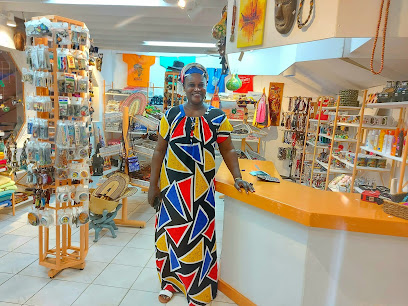
E.E. Minimarket
Experience local culture at E.E. Minimarket in Brikama, Gambia, where fresh produce meets friendly service in a vibrant grocery store.
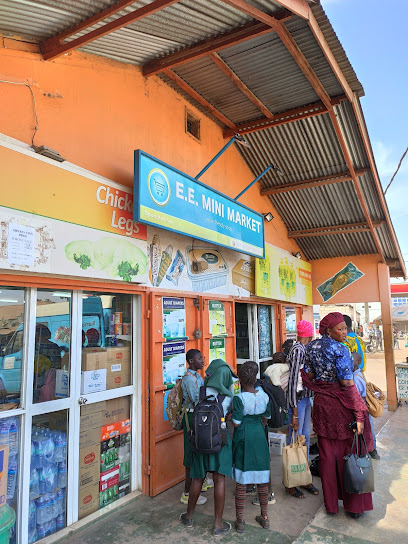
R.S.mini market.brikama
Explore R.S. Mini Market in Brikama for a unique shopping experience filled with local flavor and friendly service.

A&A Mini Market
Discover A&A Mini Market in Brikama for a unique shopping experience offering local products and essentials 24/7.
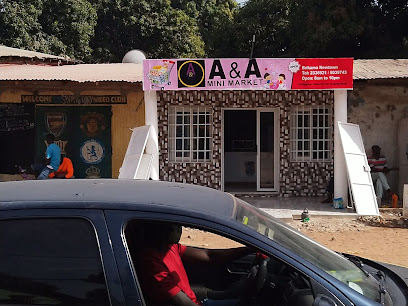
Jah Mini Market
Discover the heart of Brikama at Jah Mini Market, where local culture, fresh produce, and vibrant community life come together for an unforgettable shopping experience.
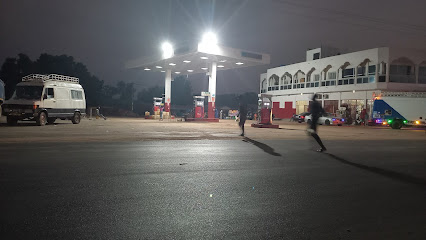
Abdou
Discover local flavors and essentials at Abdou, Brikama's vibrant supermarket where cultural shopping meets everyday convenience.
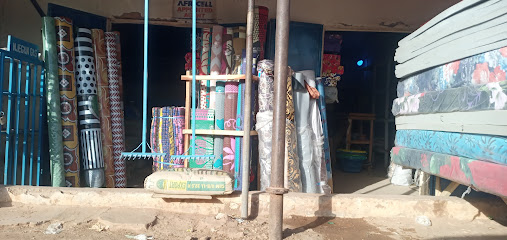
Emporium Banjul
Explore Emporium Banjul for exquisite fabrics and textiles that embody the rich culture and artistry of The Gambia, a unique shopping experience not to be missed.
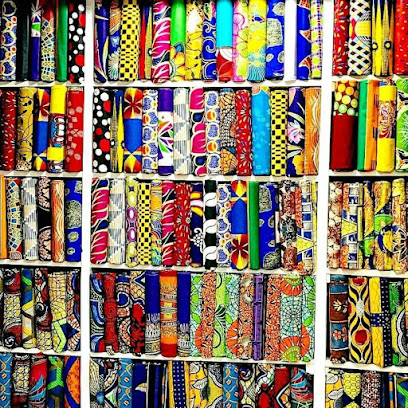
BK Mobile Electronics
Explore BK Mobile Electronics in Brikama for top-notch mobile accessories and expert repair services to keep you connected during your travels.
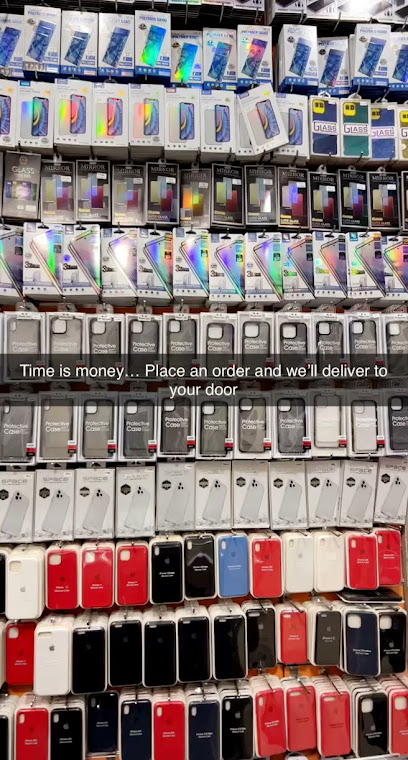
B-SQUARE ELECTRONICS
Explore B-Square Electronics in Brikama for the latest gadgets and exceptional service in a vibrant shopping environment.
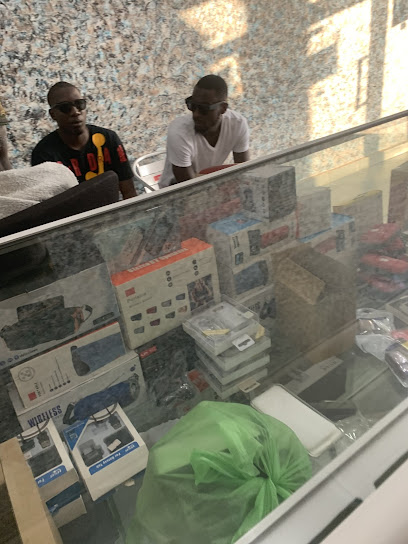
Palm Tree Place (The Gambia)
Explore sustainable fashion and unique treasures at Palm Tree Place, a charming used clothing store in the heart of The Gambia.
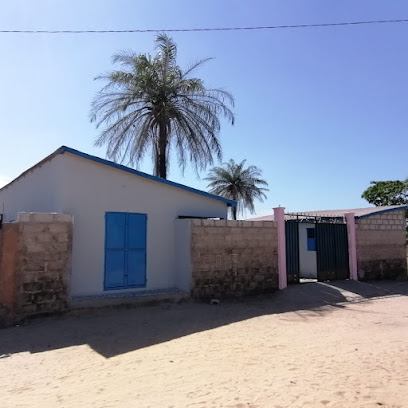
Ous Boutique
Explore Ous Boutique in Pirang for unique posters and art that capture the vibrant spirit of Gambian culture.
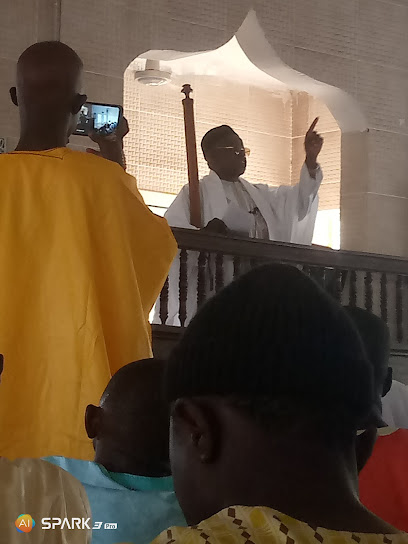
Nyima shop - (BALUWO - Food store)
Explore Nyima Shop in Brikama for an authentic Gambian grocery experience, featuring local produce, spices, and everyday essentials.
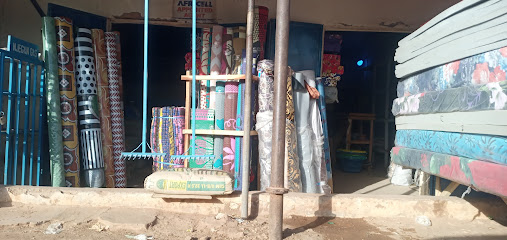
Maya's Mobile & Refreshment Shop
Explore Maya's Mobile & Refreshment Shop in Sanyang for unique gadgets and local tech treasures in a vibrant and welcoming atmosphere.
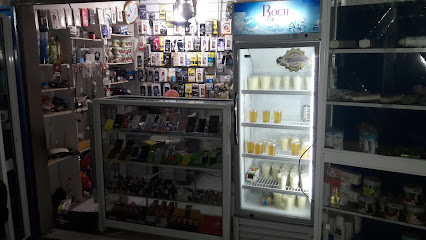
Fashionhijabi
Experience the vibrant world of Gambian fashion accessories at Fashionhijabi in Brikama, where culture meets style in every unique piece.
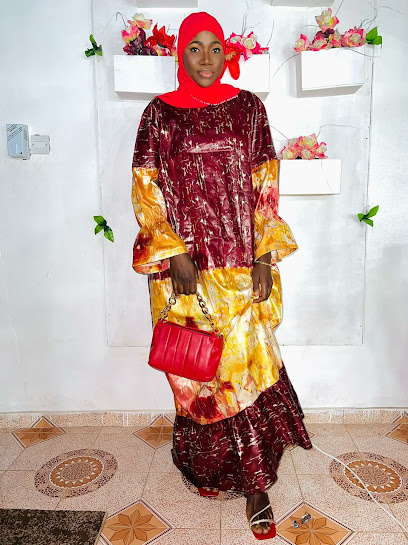
Essential bars & hidden hideouts
Rainbow Beach Bar And Lodge
Experience the vibrant coastal charm of Rainbow Beach Bar and Lodge in How Ba, offering delectable cuisine and breathtaking ocean views.
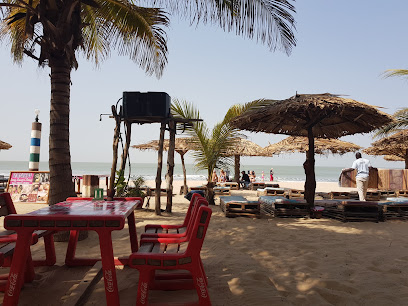
Woodpecker Bar and Restaurant
Experience the vibrant ambiance and delicious local flavors at Woodpecker Bar and Restaurant in Banjulunding.
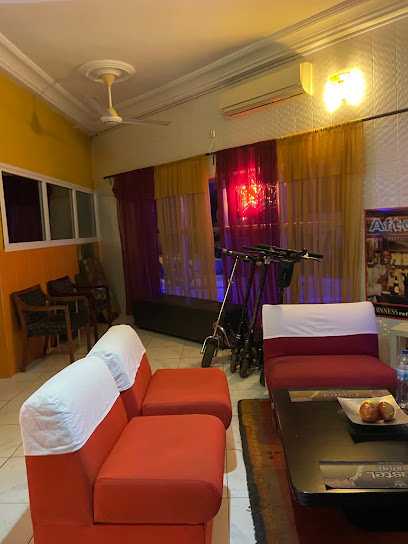
Brittania, Kololi
Discover the lively vibe of Brittania in Kololi, a must-visit bar for an unforgettable Gambian nightlife experience with local drinks and live music.
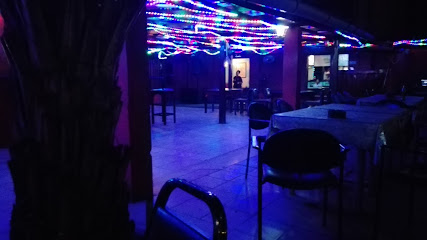
Blagger's Bar and Restaurant
Experience the best of local and international cuisine at Blagger's Bar and Restaurant in Serrekunda, a delightful gastropub for every traveler.
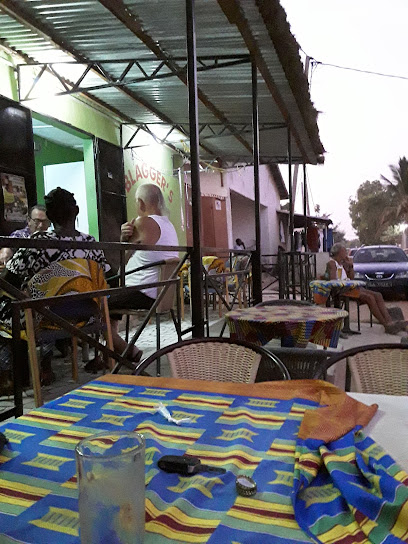
Tinas restaurant and beer garden
Discover a vibrant atmosphere at Tina's Restaurant and Beer Garden, where local flavors meet live music in the heart of Brusubi.
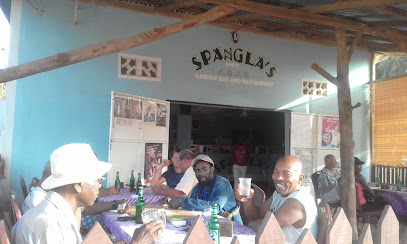
Bambo Juice Bar
Experience the vibrant flavors of Bambo Juice Bar, your tropical retreat on Batokunku Beach, where relaxation meets refreshment.
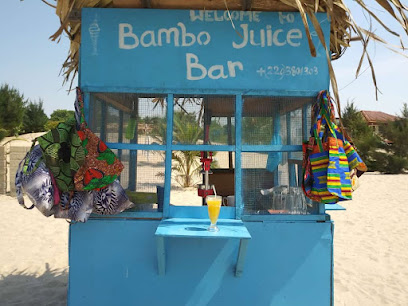
Brikama Box Bar Mini Stadium
Experience the vibrant heart of Gambian soccer culture at Brikama Box Bar Mini Stadium, where the game comes alive amid community spirit and local flavor.
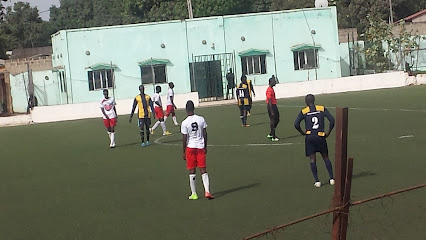
Pandora Lodge Pool Bar
Discover the ultimate relaxation at Pandora Lodge Pool Bar, where refreshing drinks and a tranquil atmosphere await in How Ba.
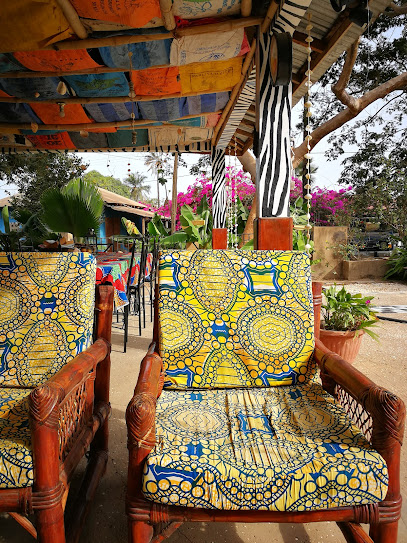
Villa Katarina Bar and restaurant
Experience the flavors of Gambia at Villa Katarina Bar and Restaurant, your serene oasis in Serrekunda for delicious food and refreshing drinks.
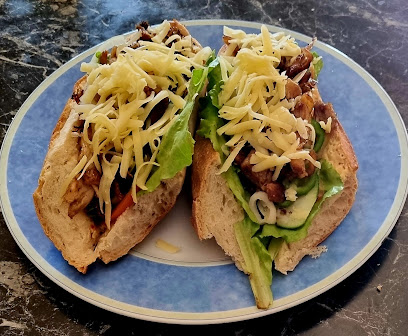
Mama Mia's Bar and Resaurant
Discover the vibrant flavors and lively atmosphere at Mama Mia's Bar and Restaurant in Sanyang, where delicious food meets local charm.

Brikama Box-Bar
Experience the vibrant atmosphere of Brikama Box-Bar, a sports complex where local culture and exciting events come together in the heart of The Gambia.
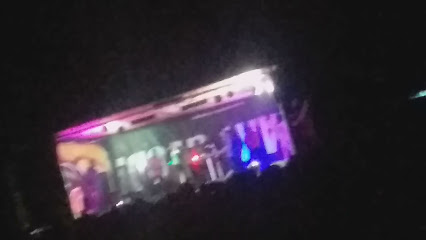
Mofi Guess house
Discover the vibrant atmosphere of Mofi Guess House, a lively bar in Brikama, Gambia, where local culture and hospitality thrive.
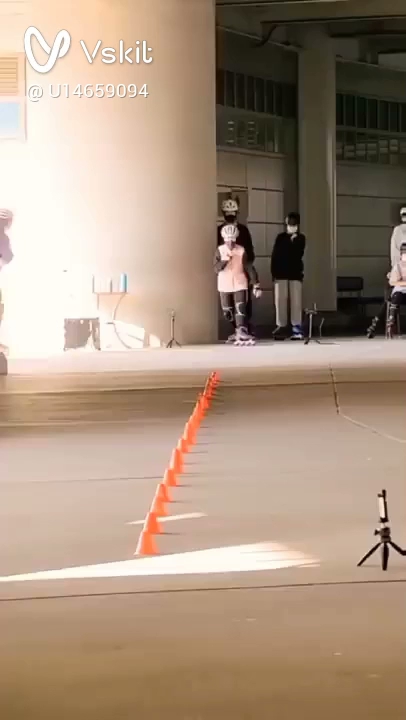
Brikama
Explore Brikama, a vibrant town in The Gambia, known for its rich culture, local craftsmanship, and warm hospitality, perfect for an authentic experience.

Kuke Beach Bar
Experience the vibrant atmosphere and culinary delights at Kuke Beach Bar, your perfect beachfront getaway in Tanji, Gambia.
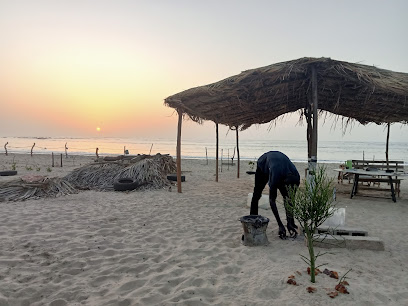
Local Phrases
-
- HelloSalam Malekum
[sa-lam mal-e-kum] - GoodbyeJaarama
[ja-ra-ma] - YesEewa
[ee-wa] - NoAla
[a-la] - Please/You're welcomeNga def
[nga def] - Thank youJerejef
[je-re-jef] - Excuse me/SorryNjaafun
[nja-fun] - How are you?Nanga def?
[nan-ga def] - Fine. And you?Jam ngaam. Nopp?
[jam ngam. nop] - Do you speak English?Noppa saa Angaleesi?
[nop-pa sa an-ga-lee-see] - I don't understandMaa laa nawett
[ma la na-wet]
- HelloSalam Malekum
-
- I'd like to see the menu, pleaseNoppa xawaanu meniyu, def
[nop-pa ha-wa-nu men-i-yu, def] - I don't eat meatMaa laa jaram
[ma la ja-ram] - Cheers!Sante
[san-te] - I would like to pay, pleaseNoppa fii le, def
[nop-pa fee le, def]
- I'd like to see the menu, pleaseNoppa xawaanu meniyu, def
-
- Help!Ndanka!
[n-dan-ka] - Go away!Jegg!
[jegg] - Call the Police!Jogat polis!
[jo-gat po-lis] - Call a doctor!Jogat doktor!
[jo-gat dok-tor] - I'm lostMaa laa ngiy
[ma la ngi] - I'm illMaa laa way
[ma la way]
- Help!Ndanka!
-
- I'd like to buy...Noppa jokko...
[nop-pa jok-ko] - I'm just lookingNoppa yaa foofu
[nop-pa ya foo-foo] - How much is it?Lun laa le?
[lun la le] - That's too expensiveWone su laa teey
[won su la tee] - Can you lower the price?Noppa defal lu taxaw
[nop-pa de-fal lu ta-khaw]
- I'd like to buy...Noppa jokko...
-
- What time is it?Ku lay mbokk?
[ku lay mbok] - It's one o'clockWaqti bi
[wak-ti bi] - Half past (10)Demb ɗi xam xam (10)
[dem-bi xam xam] - MorningSubaka
[su-ba-ka] - AfternoonNgoon
[ngo-on] - EveningNdur
[n-dur] - YesterdayAntaan
[an-tan] - TodayHõrõ
[ho-ro] - TomorrowFaññi
[fa-nyi] - 1Ñaari
[nya-ri] - 2Jombi
[jom-bi] - 3Jokkondir
[jok-kon-dir] - 4Njëbë
[nje-be] - 5Juroo
[ju-ro] - 6Jowor
[jo-wor] - 7Njënd
[nje-nd] - 8Njëtt
[nje-tt] - 9Njëf
[nje-f] - 10Fukk
[fukk]
- What time is it?Ku lay mbokk?
-
- Where's a/the...?Deemaa la...
[dee-ma la] - What's the address?Yoon tereefu ndee?
[yon te-re-fu n-de] - Can you show me (on the map)?Noppa defal nga seen (ñaar)
[nop-pa de-fal nga seen nyaar] - When's the next (bus)?Ku dembaa ñaari (bus)?
[ku dem-ba nya-ri bus] - A ticket (to ....)Noppa yaram (ko ....)
[nop-pa ya-ram ko]
- Where's a/the...?Deemaa la...
History of Brikama
-
Brikama, often referred to as 'The City of the Forest,' is one of the oldest towns in The Gambia. It was established around the 16th century by the Mandinka people, who migrated from the Mali Empire. A rich oral tradition tells of early settlers who were drawn to the fertile lands and abundant water sources, which were ideal for farming and hunting.
-
During the late 19th century, The Gambia became a British protectorate. Brikama, with its strategic location, became an administrative center. The British influence brought changes in local governance and infrastructure, including the establishment of schools and healthcare facilities. However, it also led to resistance and local uprisings against colonial rule.
-
Brikama played a pivotal role in The Gambia's journey to independence. The town was a hotbed for political activism, with many influential leaders emerging from the area. The 1950s and 60s saw a surge in nationalist sentiment, leading to The Gambia's independence from Britain in 1965. Brikama's citizens were actively involved in the political discourse and contributed significantly to the national movement.
-
Brikama is renowned for its vibrant culture and craftsmanship. The town is famous for its woodcarving and musical heritage. Local artisans produce intricate wooden sculptures and traditional musical instruments like the kora and djembe. Brikama is also home to numerous cultural festivals that celebrate Mandinka traditions, music, dance, and oral storytelling.
-
In recent decades, Brikama has seen significant economic growth and modernization. Agriculture remains a backbone of the local economy, with many residents engaged in farming and horticulture. Additionally, the town has developed into an educational hub, hosting several schools and colleges. The expansion of infrastructure, including roads and markets, has positioned Brikama as a key economic zone in The Gambia.
-
Despite modern advancements, Brikama remains committed to preserving its rich heritage and natural environment. Efforts are ongoing to protect the surrounding forests and wildlife, which are integral to the town's identity. Community-led initiatives focus on sustainable development and the promotion of eco-tourism, ensuring that Brikama's cultural and natural legacy endures for future generations.
Brikama Essentials
-
Brikama is located in the Western Region of The Gambia. The nearest international airport is Banjul International Airport, approximately 30 kilometers away. From the airport, you can take a taxi or a bus to Brikama. The journey typically takes around 45 minutes by road. Alternatively, you can arrange for a private transfer through your hotel or a local travel agency.
-
Public transportation in Brikama includes taxis and minibuses (locally known as 'gele-gele'). Taxis are relatively inexpensive and can be found throughout the town. For a more immersive experience, try taking a 'gele-gele', which offers a budget-friendly way to get around. Renting a car is another option, but be aware that road conditions can vary. Walking is also a viable option for short distances, as many attractions are within walking distance of each other.
-
The official currency in The Gambia is the Gambian Dalasi (GMD). Credit cards are accepted in some hotels, restaurants, and larger shops, but it is advisable to carry cash, especially in smaller establishments and local markets. ATMs are available in Brikama, but it is wise to withdraw sufficient cash in Banjul before traveling to ensure you have enough funds. Currency exchange services are also available at the airport and in major towns.
-
Brikama is generally a safe destination for tourists, but it's important to take standard precautions. Avoid walking alone at night in unfamiliar areas and keep an eye on your belongings in crowded places. Some areas of Brikama, particularly those away from the main tourist spots, may have higher crime rates. It's best to stay in well-lit, populated areas and to avoid displaying valuables openly.
-
In case of emergency, dial 117 for police assistance, 116 for medical emergencies, and 118 for fire services. Brikama has a local police station and medical facilities. It is recommended to have travel insurance that covers medical emergencies. For minor health issues, there are pharmacies in the town where you can purchase over-the-counter medications.
-
Fashion: Do dress modestly, especially when visiting religious sites. Avoid wearing revealing clothing. Religion: Do respect local customs and traditions. Always remove your shoes before entering a mosque. Public Transport: Do be respectful and give up your seat to elderly passengers. Don’t eat or drink on public transport. Greetings: Do greet people with a handshake and a friendly smile. It is polite to ask about someone's health and family. Eating & Drinking: Do try local delicacies and accept food offerings graciously. Don’t eat with your left hand, as it is considered impolite.
-
To experience Brikama like a local, visit the local markets where you can buy fresh produce and traditional Gambian crafts. Engage with locals, as they are often friendly and willing to share stories about the town's history and culture. Don't miss visiting the Brikama Craft Market, known for its handmade wooden carvings and textiles. For a unique experience, attend a local music or dance performance, which offers a glimpse into the rich cultural heritage of The Gambia.
Trending Landmark in Brikama
Nearby Cities to Brikama
-
Things To Do in Lamin
-
Things To Do in Gunjur
-
Things To Do in Serekunda
-
Things To Do in Serrekunda
-
Things To Do in Banjul
-
Things To Do in Bakau
-
Things To Do in Kaolack
-
Things To Do in Farafenni
-
Things To Do in Soma
-
Things To Do in Mbour
-
Things To Do in Canchungo
-
Things To Do in Thiès
-
Things To Do in Dakar
-
Things To Do in Bissau
-
Things To Do in Janjanbureh





